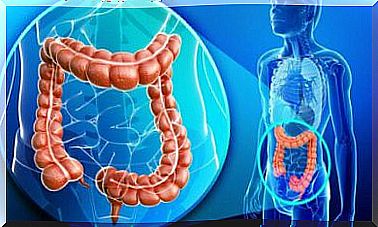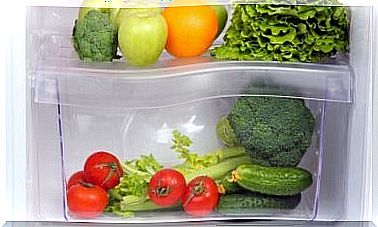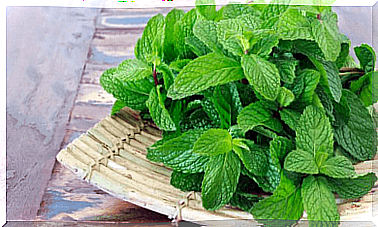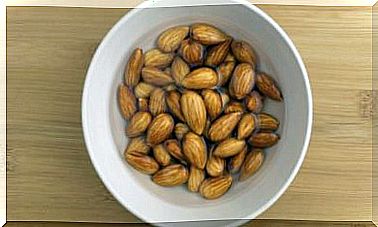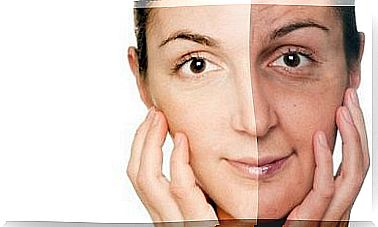Multiple Abscesses: Help Yourself With Diet!
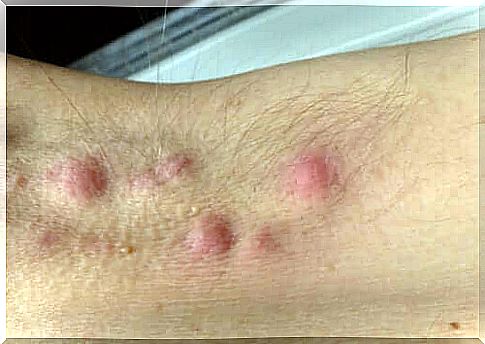
A healthy diet is part of the prevention and treatment of many diseases. If you suffer from acne or multiple abscesses, you need to take care of your eating habits.
The treatment of this skin problem is based on therapy in which the diet is among the non-pharmacological aspects. While there is insufficient scientific evidence to support this claim, it is assumed that avoiding certain dairy, processed, sugar and yeast products has a positive effect on skin health.
What’s more, certain supplements that contain vitamin D, zinc, and turmeric may work as an adjunct. Let’s take a look at the details.
What are multiple abscesses?
Multiple abscesses are a chronic, recurrent, inflammatory skin disease that reduces the quality of life. As a result, the hair follicles become clogged and inflammation arises.
It is called inverted acne because damage occurs under the skin, usually where it is exposed to friction – in the armpits and groin.
It affects 0.05% to 4% of the population and is most common among women between the ages of 20 and 40. The exact causes are unknown, but genes, obesity, skin friction, and smoking are all risk factors.
Multiple abscesses: what to eat to help yourself?
Lawrence Gibson says that nutrition can influence the development of multiple abscesses. A nutritious, balanced diet prevents overweight and obesity, which are considered risk factors.
There is no evidence that specific diets are effective in treating multiple abscesses, but patients and clinicians recognize the importance of nutrition in managing this condition. Let’s take a look at some of the recommendations.
A dairy-free diet
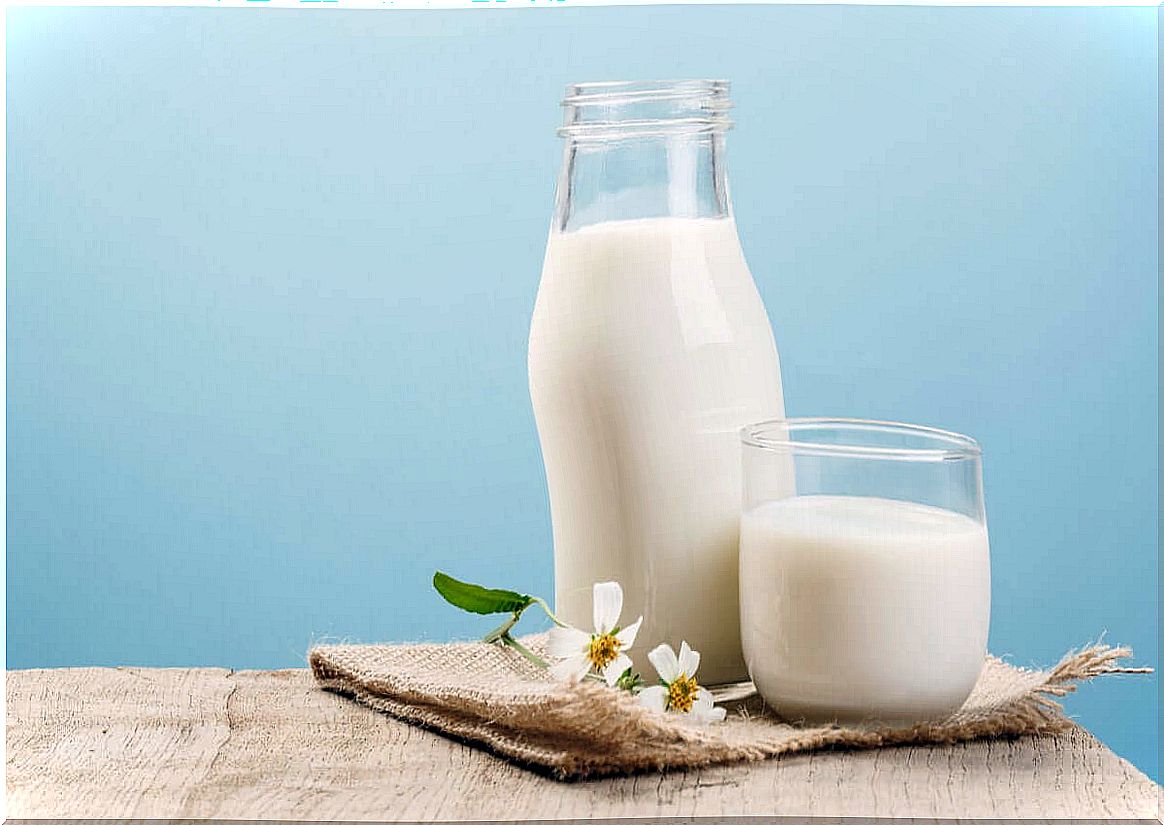
According to the publication of the Journal of the American Academic of Dermatology, a group of researchers has shown that there is a correlation between the consumption of dairy products and the appearance of acne lesions and multiple abscesses. 83% of 47 patients had a dairy-free diet with good results.
Dairy products contain casein, whey, and the hormones known as androgens that block the hair follicles. A dairy-free diet relieves symptoms of multiple abscesses.
It is recommended to eliminate milk, white cheese, ricotta, ripening cheese, milk ice cream, yoghurt, cream, whey and butter from your diet, among others.
A diet with a low glycemic index
Researchers say that simple carbohydrate-rich foods such as sodas, sweets and ice cream raise blood sugar levels and stimulate insulin secretion. Then, androgens are released and multiple abscesses appear.
To lower the glycemic index of the diet, it is recommended to eliminate sugars, desserts, sweetened drinks, sweets, syrups, chocolate and breakfast cereals in the diet. However, it is recommended to increase the consumption of fiber, vegetables, fruits and pods.
A diet without wheat and yeast
Wheat and yeast exacerbate the symptoms of multiple abscesses. Saccharomyces yeast is used in the production of beer, wine and sourdough for bread. Research has shown that they cause the immune system to react, leading to intolerance.
A study conducted on 12 patients suffering from multiple abscesses proved that excluding yeast from the diet for one year contributed to the disappearance of skin lesions and improvement of the quality of life.
However, symptoms returned when we re-consumed wheat or beer. However, the small size of the study group and the lack of a control group do not allow for drawing generalized conclusions. It is unclear whether the yeast problem only affects wheat intolerant patients.
It is recommended to eliminate alcohol-fermented beverages from the diet. Bread, dough, pizza, soy sauce, powdered soups, and other products containing wheat and yeast should also be excluded.
Mediterranean diet
Nutrients published the results of a study of 41 patients with multiple abscesses who consumed little of the typical Mediterranean diet. Patients eating such products did not have such skin problems.
The Mediterranean diet includes vegetables, fruits, whole grains, pods, olive oil, fish and seafood. There is no processed food in it. It has a low glycemic index and high fiber content.
Low-calorie diet
Some studies have shown that many patients with multiple abscesses are obese and that there is a correlation between body mass index and the course of the disease. Dr. Boer wrote that low-calorie diets aimed at reducing weight reduce the incidence of this disorder.
A retrospective study of patients who underwent surgical treatment of obesity showed that those who lost weight by at least 15% also had a reduction in the symptoms of multiple abscesses.
Moreover, low-calorie diets contain a lot of fiber, which increases the feeling of fullness. Moreover, they exclude foods with a high glycemic index such as sugar and processed foods.
Vegan diet
Research has shown a correlation between digestive health and skin health. It has to do with the microorganisms that live in the gut (microbiota). In people who eat a lot of vegetables, the microbot is more varied.
Patients with multiple abscesses and multiple abscesses showed less microbiota diversity. The control group without multiple abscesses, following a diet rich in vegetables, showed greater variability in this respect.
It seems that excluding nightshade vegetables (potato, eggplant, tomato, pepper) from your diet may help alleviate symptoms. The same is true for autoimmune diseases.
How to support the treatment of multiple abscesses with a diet?
While there is insufficient research on the effectiveness of supplements in treating multiple abscesses, some specialists recommend them as part of adjuvant therapy.
Zinc
Brocard and Dréno found that 90 milligrams of zinc gluconate per day restored the innate immunity of 22 patients with advanced multiple abscesses. Other experts recommend 30 to 60 milligrams a day for inflammation associated with acne.
Vitamin D

Vitamin D also plays an important role in relieving inflammation in multiple abscesses. A group of experts found that 63% of patients with multiple abscesses and vitamin D deficiency experienced an improvement from taking supplements with this micronutrient.
Moreover, experts recommend consuming vitamin D in food or in the form of supplements, rather than sunbathing, which can harm the skin.
Turmeric
Some studies have shown turmeric’s antioxidant, anti-inflammatory, and regulating properties. Its active compound, curcumin, modulates the action of inflammatory cytokines.
What’s more, turmeric can soothe the inflammation found in multiple abscesses. While no definitive dosage conclusions are available in this context, its efficacy is recognized.
Multiple abscesses and diet
If you suffer from multiple abscesses and want to change your diet, consult a dermatologist. A specialist will advise you on what type of diet will work best for your health.
It is also worth consulting a dietitian to determine the nutritional status and rule out food intolerances. It is also worth increasing the level of zinc and fiber in the diet.


